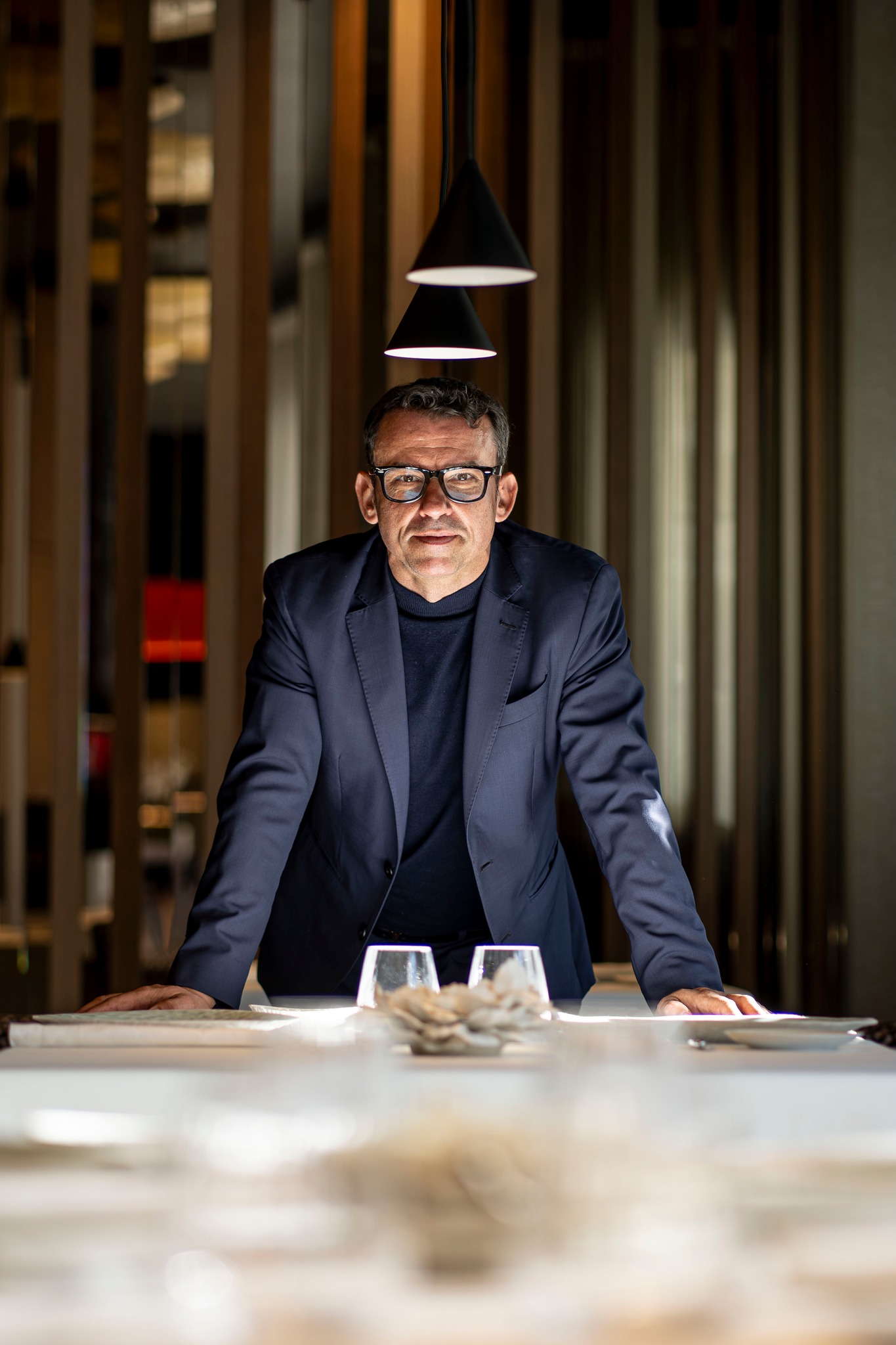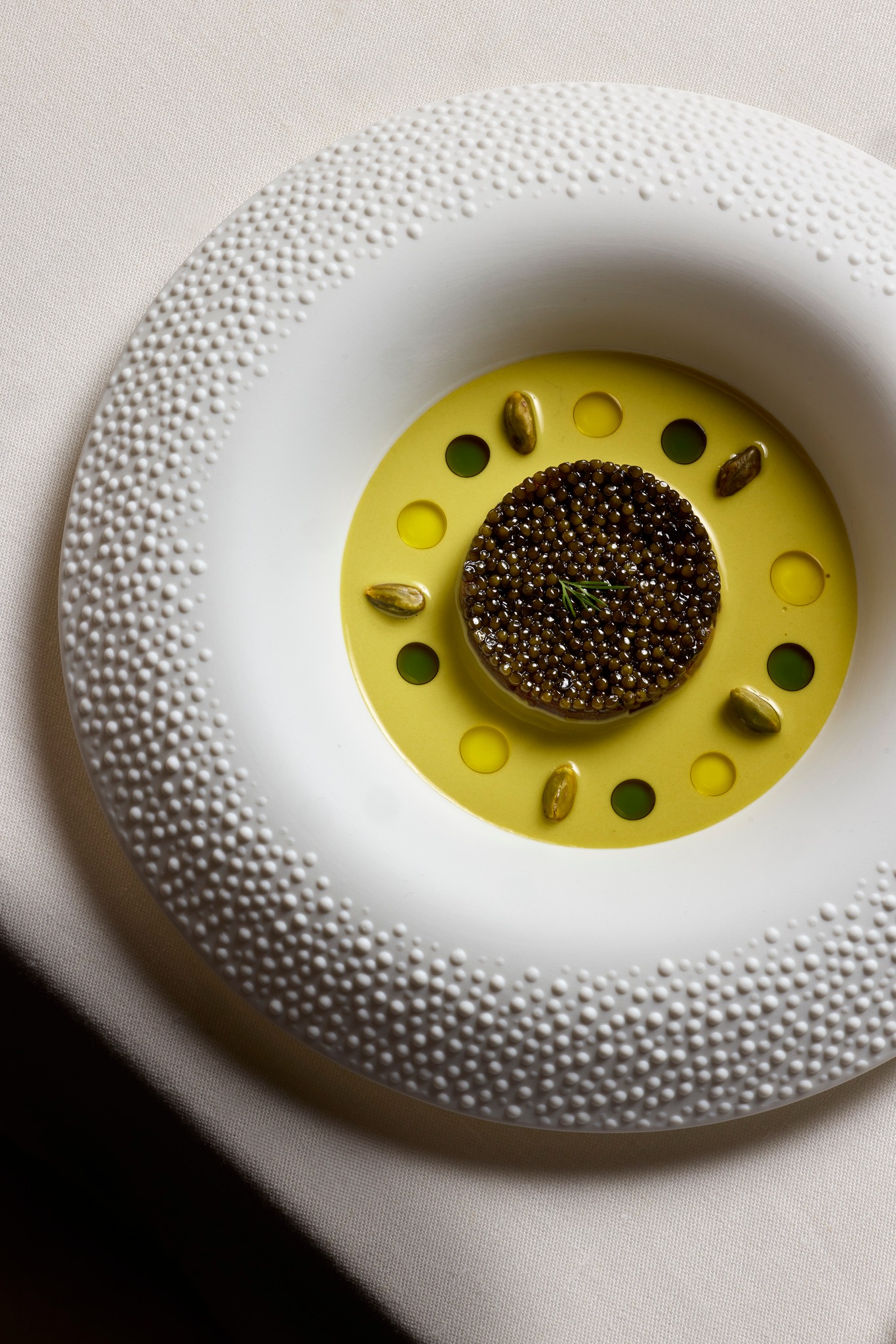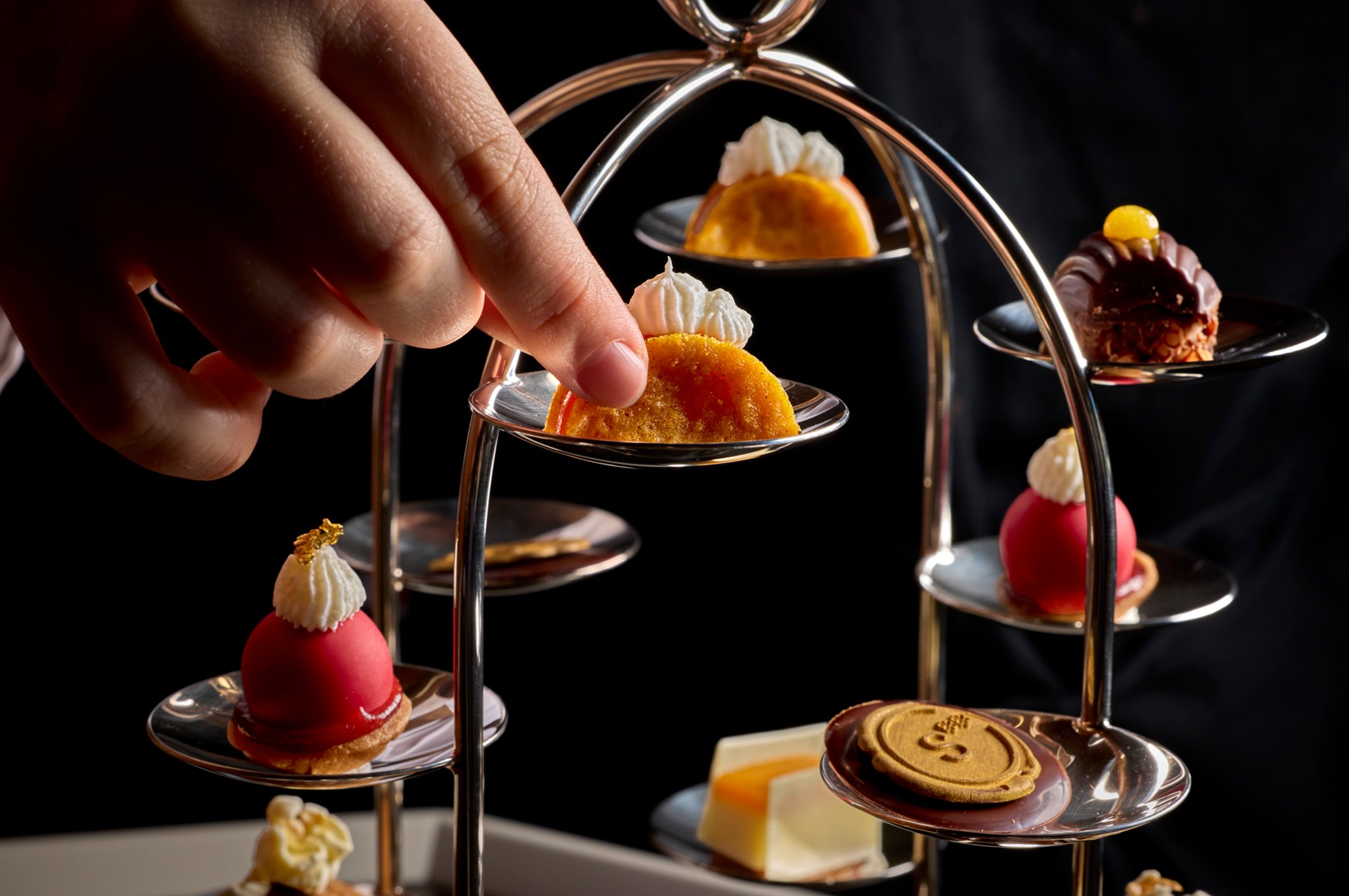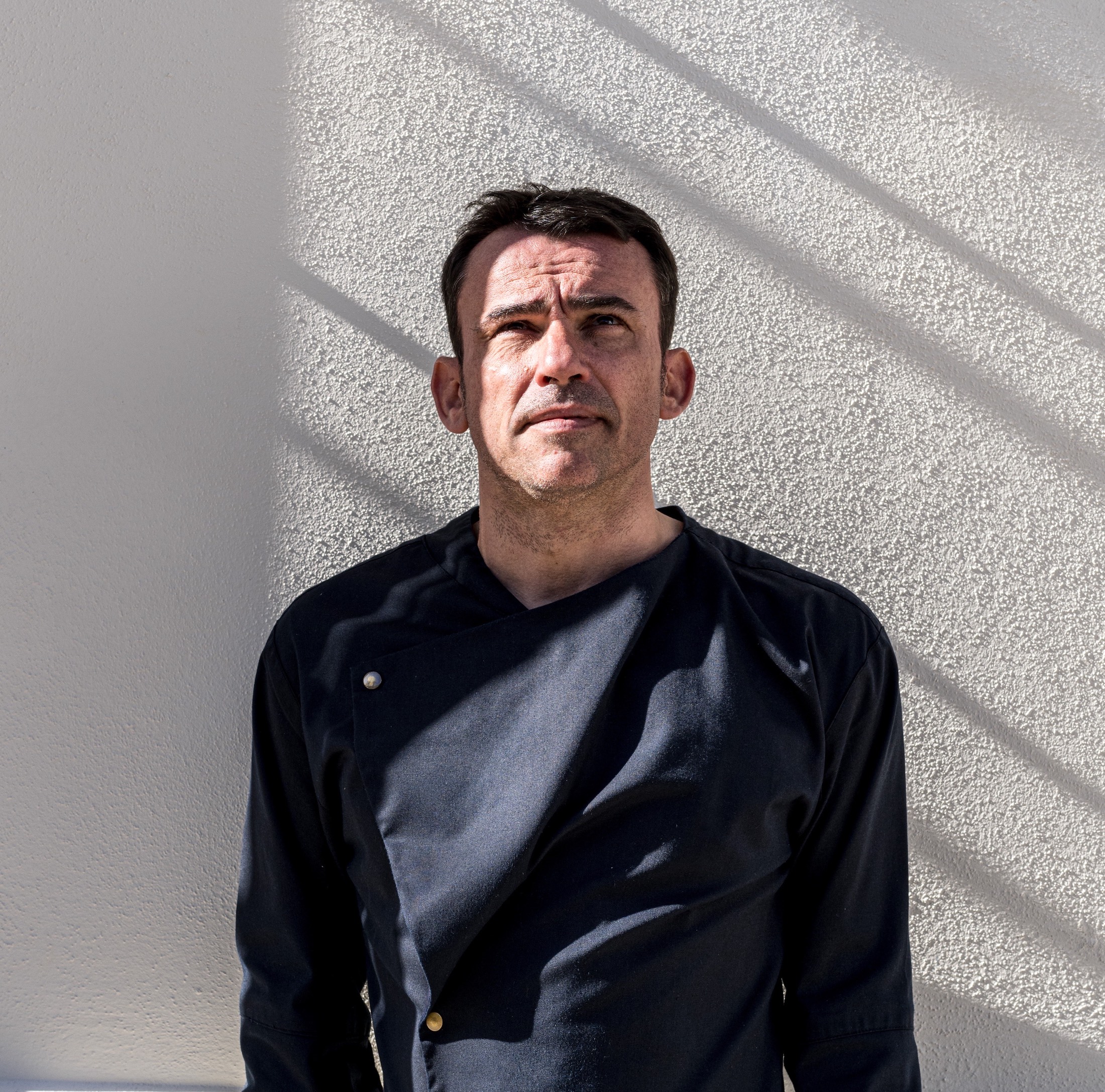“Of course, the stars matter. But do I work for them? No, I work for the well-being of my staff and the people who sit at my tables.”
Marcos Granda: The genius behind seven Michelin stars and the pursuit of excellence
In the world of haute cuisine, Marcos Granda is a unique entity. Humble enough to describe himself as a “waiter” and placing hospitality at the heart of his work, the Spanish sommelier has demonstrated his ability to create a solid model of hospitality and entrepreneurship, earning a total of seven Michelin stars across his various restaurants. With Skina, in Marbella, in the running for its third star, Granda is now at the center of growing media attention, which means he has to manage considerable expectations.
The “Granda philosophy”: product, elegance, and hospitality
The experience at a restaurant like Skina, where the tasting menu costs €350, is first and foremost a tribute to the product and seasonality. The setting is bright, spacious, and elegant, but the attention to detail and the quality of the ingredients is palpable, as evidenced by a tray of tomatoes that unexpectedly appears on the table setting.

The move to a more spacious location has been the subject of much discussion, with some suggesting that it is an attempt to secure a third macaron by changing the scenery. On this point, however, Granda is adamant: customers and employees come before awards. “I wanted to offer more comfort to guests and the team,” he explains to La Vanguardia. "It's true that we understand that this is a step towards obtaining three stars. But that doesn't mean we moved for that reason. We moved to physically shape the restaurant I've always dreamed of.“ And when asked whether stars are an important goal or not, he replies with conviction: ”Of course, stars matter. But do I work for them? No, I work for the well-being of my staff and the people who sit at my tables." In short, awards are the result, not the focus of daily work.

The alchemy of success: cuisine, dining room, and wine cellar
What can you eat at Skina? Granda has entrusted the menu to Mario Cachinero, a young talent who prepares dishes such as red tuna tartare with caviar and pistachio ajoverde or carabinero with its “sopa en amarillo” (yellow soup), all focused on the balance between the exaltation of local products and a wide range of flavors. But the cuisine is, as always, only part of the restaurant: hospitality plays a key role, and what makes Granda unique in the Spanish gastronomic scene is his role as waiter, sommelier, and entrepreneur who, despite his personal success, always emphasizes the team and the importance of the perfect combination of food, service, and wine. This winning formula is repeated not only at Skina, but also at Nintai (Marbella), Clos and Toki (Madrid), and Ayalga and Marcos (Asturias), all restaurants with at least one star.

“Skina is at its best,” admits Granda. “But we must remain humble and remember that there will be many restaurants in Spain that are on par with mine. I can name seven or eight right now that could earn a third star.” Furthermore, the Iberian master of hospitality does not want the pressure to achieve certain results to affect his family life. “I've already promised my family and team that I won't be overly influenced by expectations this year. I hope that the presentation of the guide doesn't affect me even half as much as it did last year.”
The winning recipe and the next chapter

There may be no magic formula for winning the top prize, but Granda certainly has a recipe for success with his restaurants. His advice to his colleagues? "Serve good food and be honest about it. You have to be aware of what you're offering, what you're serving and what you're charging. Often restaurants open without considering that rents are sky-high, then they create the menu and there's no money left for sea bass or filet. So many use mediocre ingredients.“ Meanwhile, something is brewing for the sommelier's future: it will be ”a great restaurant in a great hotel in a seaside town." We'll talk about it again in 2026!











